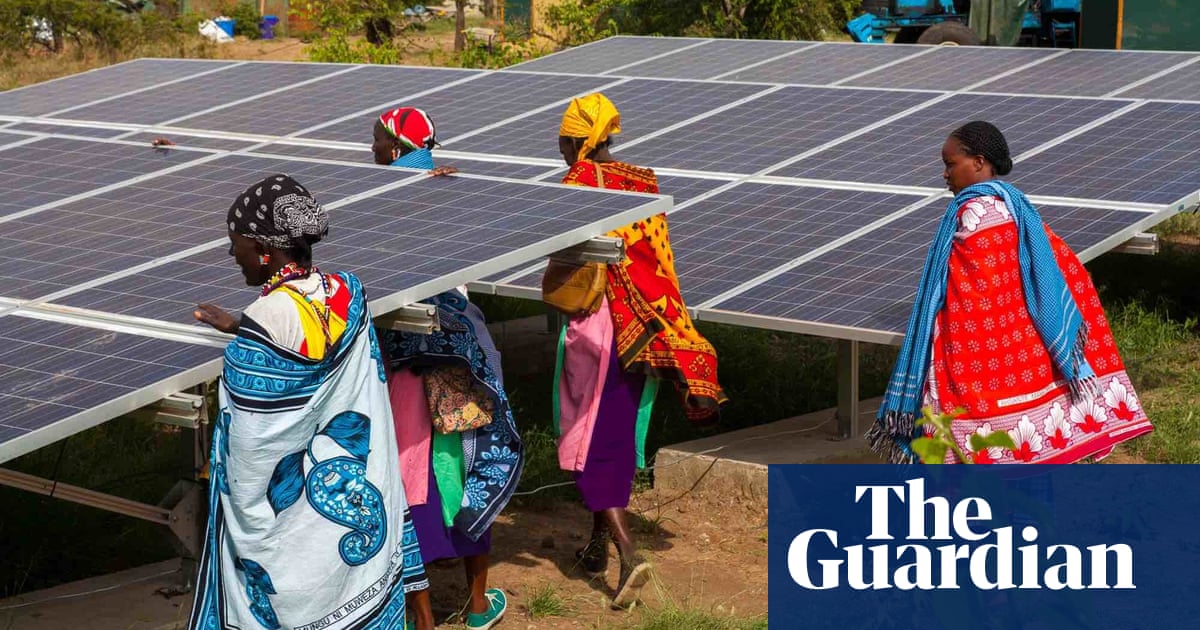Jobs
Green economy could generate 3.3m jobs across Africa by 2030 – report

A greener economy could bring millions of jobs to some of the largest countries in Africa, according to a new report.
Research by the development agency FSD Africa and the impact advisory firm Shortlist predicts that 3.3 million jobs could be generated across the continent by 2030.
Forecasting Green Jobs in Africa predicts that 60% of the roles, mainly in the renewable energy sector, will be skilled or white collar positions that can “spur the growth of the middle class in countries with high-growth sectors” such as renewable energy, e-mobility, construction and manufacturing.
The report was based on forecasts from five countries – the Democratic Republic of the Congo, Ethiopia, Kenya, Nigeria and South Africa – that the study says will see more than a fifth of the jobs expected from the green transition over the next six years.
About 10% of the jobs created will demand university degrees, 30% will be “specialised” work that requires certification or vocational training, and 20% administrative. Unskilled labour will be more stable, with opportunities for upward mobility, the study predicts.
“This is the first public report that takes seriously the notion that human capital and talent is important as an input to green economic growth, and as a positive outcome – in the form of millions of new, direct jobs,” says Paul Breloff, CEO of Shortlist.
The renewable energy sector will generate about 70% of jobs, and roughly 1.7m will be in solar power. DRC and Ethiopia, with Africa’s largest and second largest hydropower potential – will see jobs in that sector. Agriculture should employ hundreds of thousands, with more than half of those jobs in climate-smart technology.
The researchers call on policymakers, funders and educational institutions to invest in training a workforce in green industries, saying it could “contribute to the formalisation of African economies, and the inclusion of whole populations in stable systems of remuneration, social security and taxation”.
“Policymakers and funders and workforce developers need to step up to meet this near-term demand with effective training, apprenticeships, and job/skill matching, in hopes of achieving Africa’s green promise,” said Breloff.
With its young workforce and vast renewable energy resources, Africa can “leapfrog” into renewables, skipping over the carbon-intensive pathways taken by industrialised countries, but, the report’s authors argue, it will require “supportive policies, infrastructure, and significant financial investments, estimated at over $100bn annually”.
African countries have struggled to attract renewable energy investments due to investor perceptions of risk and concerns over commercial viability. The continent receives only 3% of global clean energy funding. To meet climate and energy access development goals, investments need to more than double to over £155bn a year by 2030, according to the International Energy Agency (IEA) and the African Development Bank.
“You need a base level of good skills in the country to get investors comfortable putting their money into green investments – those jobs de-risk investments, investments flow into or within the country. If finance flows, then projects get to be realised, and will create even more new jobs,” said Kevin Munjal, director of development impact at FSD Africa.
Some countries, especially those with oil and gas reserves, continue to push back on calls for Africa, which accounts for less than 4% of global carbon emissions, to elevate carbon reduction goals over domestic priorities, such as fossil fuels for economic growth or domestic energy, when 600 million Africans do not have access to electricity.
Munjal says that, while “there is need to think about a just transition”, green growth provides critical potential for jobs and economic growth.
“There is a significant opportunity here to address what is quickly turning into a demographic crisis,” said Munjal. “Africa has the youngest, fastest-growing workforce but … the youth need jobs.”








